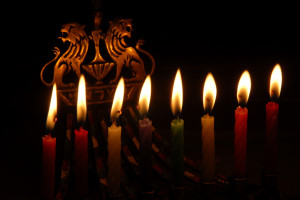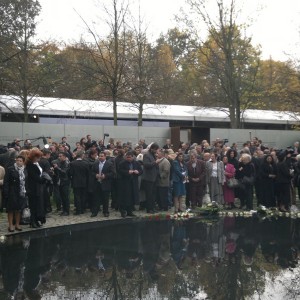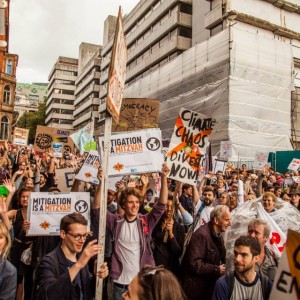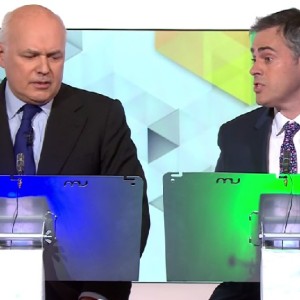Laudato Si, or how we need to learn a thing or two about faith

You may be, like me, a person who does not embrace a particular faith, even if you were raised, as I was, nominally Protestant. But as an activist, it’s hard to ignore the power that faith has in changing the world – sometimes decidedly for the better. Which is why it’s a shame that faith and religion have acquired such negative connotations, to the point that most of us lefties unthinkingly offend or diss those people who do believe. Some of them, for want of a better political home, end up turning to conservative or right-leaning parties; whereas others greatly contribute to our movement, including within the Green Party, but at the same time, may feel uncomfortably closeted because, let’s face it, prejudice against religion and faith is strong within our ranks.
However, recent political events should force us to reconsider and reflect on the links between activism and religion. We cannot look away and disengage from the profound role that faith plays in political change, when in Charleston, 9 people were gunned down in a seemingly random act of terrorism. Yet Charleston has long been a stronghold of radical politics, even in the face of repeated attacks, as vividly described by this article in the New York Times:
‘In 1868, three men assassinated the Rev. Benjamin Randolph in broad daylight as he was boarding a train in Abbeville County, South Carolina. Randolph, a black man, had recently won a seat in the State Senate and was then campaigning for the Republican slate. Having served as an Army chaplain with the 26th Regiment United States Colored Troops, Randolph asked the Freedmen’s Bureau to send him “where he can be most useful to his race.” He settled in South Carolina in time to take part in the 1865 rededication of the Emanuel African Methodist Episcopal Church in Charleston. It was that church’s long history of spiritual autonomy and political activism that caught the attention of the white vigilantes who gunned him down and rode away. Randolph’s fate was repeated yesterday with the murder of nine people, including the pastor of the church, the Rev. Clementa Pinckney, who, like Randolph, also served as a state senator.’
Then again, whatever you may believe about the failings of the Vatican, and of state sanctioned religion, even the most cynical commentators have started to wake up to the realisation that ‘the radical Francis links straight to the liberation theologists of the 1960s and 70s’. But how many of us know about the wide political and religious alliances upon which the Pope’s encyclical on climate change, Laudato Si, was built: with the scientific community and the Greek Orthodox Church, with the Climate Coalition (under whose banner Jesuit missions marched in Westminster) and with Jewish faith leaders.
Incidentally, if you ever thought faith cannot be Deep Green, read this article by Rabbi Lawrence Troster, Eco-Theologian, Educator and Environmental Activist. Indeed, in Judaism, a religion whose cornerstone is changing the world, most festivals such as Passover, Sukkot or Hannukah, neatly dotted throughout the year, are celebrations of liberation from oppression and carry a message of embracing and welcoming activism. Yet, how many of us are conversant with the deep radical roots of Jewish culture and faith? (For those who would like to know more, here’s a very informative article written for Bright Green by Ben Samuel.) And how many of us forget that being an observant Jew does not mean being bigoted and narrow-minded, but rather a deeply sophisticated critical thinker. If anyone has any doubts about that, I urge you to see the film ‘Saul’s son’ and read this interview with Géza Röhrig , who plays the main character and speaks openly about how he draws his strength from his relationship with God. Living as I do in Hungary, Röhrig’s home country, I cannot but grieve daily for the disappearance of so many Jews from Central Europe during the Holocaust, and I cannot help but wonder whether their exodus and massacre have not led almost directly to a political atmosphere where the far right can dupe people into unthinking and passive political un-participation.
So here’s a lesson for us Greens: we need to learn about faith, by listening to those of our comrades who embrace it in everyday life, and we need to understand that religion is not dogma, but deeply thoughtful political engagement. To make a start and because it is the holy month of Ramadan, why not take a breather and visit the generously provided Ramadan Tent Community Project?
Bright Green would like to invite activists and progressive politicians who are believers to tell us how faith and politics go together in their lives. Write to us at front-desk@project1-hvznj9e2s8.live-website.com.




This is an unauthorized use of the photo. Please per the Flickr terms of use, include an attribution link to the photographer’s photostream, and do not crop the photo.
Hello! I apologise for not including the link to the photostream, have done so now. However, I did not intentionally crop the photo, that is how it appeared on Flickr. If you want to send us the uncropped version I will happily use that instead. Please write to us at front-desk@project1-hvznj9e2s8.live-website.com. Thank you.
It’s a good and happy coincidence that none of the major religions was founded after the Industrial Revolution. (Apart from the biggest of all, of course: Consumerism.)
The result is that when they choose to engage with humanity’s most profound challenge, the leaders of great faiths can reach for pre-industrial language, parables, and myths, to describe the better world within reach if we choose the right path.
The Abrahamic faiths are founded on a story about expulsion from paradise: things were good, humans misbehaved, a whole lot of misery ensued. Just about every member of the Green movement, regardless of their feelings about organised religion, would recognise the truth of that narrative.
Stories matter in any struggle for hearts and minds – that’s why they’re the lifeblood of politics and religion.
If Pope Francis’ latest encyclical helps his billion followers (not bad for the leader of a pre-digital organisation!) to find their way back to the Garden, he’s to be congratulated.